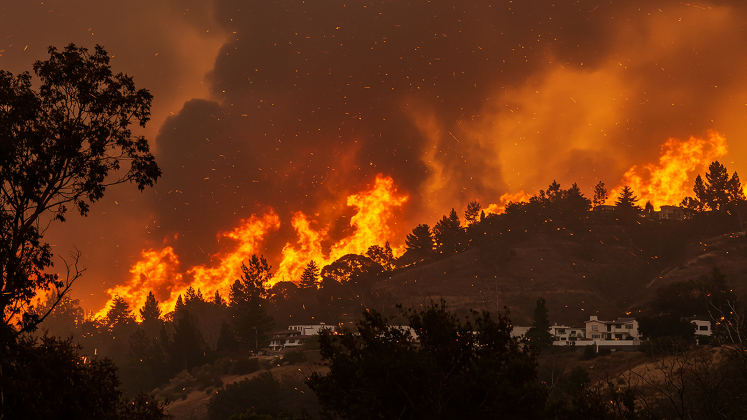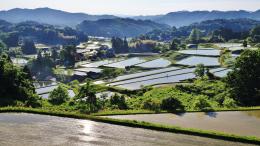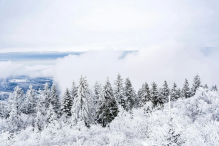RICHMOND HILL, CANADA – May 13, 2025 – A new publication by the United Nations University Institute for Water, Environment and Health (UNU-INWEH), January 2025 Los Angeles Wildfires: Once-in-a-Generation Events Now Happen Frequently, highlights the alarming trend of increasingly frequent and destructive urban wildfires, drawing critical lessons from the January 2025 Los Angeles wildfires. These events, the Palisades and Eaton fires, collectively destroyed nearly 16,250 structures and directly exposed approximately 41,000 people, ranking them as the 2nd and 3rd most destructive wildfires in California's history, according to the analysis.
The fires, which started on January 7, 2025, spread rapidly through urban areas of Los Angeles County, fueled by severe drought conditions and powerful Santa Ana winds. The rapid spread into densely populated areas resulted in 29 fatalities and widespread population displacement, underscoring the heightened risks posed by human development in wildfire-prone areas.
" Our study highlights the low-survival rate of buildings in the January 2025 Los Angeles fires due to compounding impacts of climate-related and direct human factors" says Dr. Mojtaba Sadegh, Climate and Wildfire Analytics Lead at UNU-INWEH and lead author of the publication.
The authors emphasize that while the burned areas were not exceptionally large, the significant portion impacting urban areas led to the high level of devastation. Key drivers identified include vegetation growth followed by dry conditions (hydroclimate whiplash), powerful Santa Ana winds, and human-caused ignitions during critical dry-hot-windy conditions. Climate change is noted for exacerbating these conditions.
In response to these growing threats, the UNU-INWEH's incident analysis puts forth several critical recommendations, including prioritizing policies to decrease human-caused ignitions, especially during high-risk weather; promoting home hardening, defensible space, and community preparedness to protect communities in the Wildland-Urban Interface (WUI); encouraging ecologically appropriate vegetation management to reduce fuel loads; investing in advanced technologies for early detection, prediction, and suppression to enhance wildfire prediction and response; and implementing stricter zoning regulations and promoting fire-resilient design to strengthen land-use planning.
"The investigation clearly tells us that disasters like the Los Angeles wildfires are multi-faceted. Analysts must be extremely careful and avoid introducing one single cause, such as climate change, bad management decisions, and poor response, for complex disasters like this," states Professor Kaveh Madani, Director of UNU-INWEH and a co-author of this publication. "Reductionist thinking leads to wrong policy advice and decisions," he adds.
The analysis utilized satellite and population data to assess the impacts of wildfires, highlighting that working-age adults accounted for more than half of the direct exposures, followed by minors and older adults. The January 2025 Los Angeles wildfires serve as a stark reminder of the urgent need for proactive measures to protect vulnerable communities in an era of increasing extreme events.
Read the Paper: Sadegh M, Seydi S. T., Abatzoglou J. T, AghaKouchak A., Matin, M., Madani, K. (2025), January 2025 Los Angeles Wildfires: Once-in-a-Generation Events Now Happen Frequently UNU Institute for Water, Environment and Health (UNU-INWEH), Richmond Hill, Ontario, Canada.
doi: https://doi.org/10.53328/INR25MOS003
The UNU research team is available for interviews:
Dr. Mojtaba Sadegh, Lead, Climate and Wildfire Analytics, mojtaba.sadegh@unu.edu
Dr. Mir Matin, Manager, Geospatial, Climate and Infrastructure Analytics Program, mir.matin@unu.edu
Professor Kaveh Madani, Director, kaveh.madani@unu.edu
Media Contacts
Kyra Bowman, UNU Head of Communications, bowman@unu.edu





